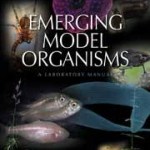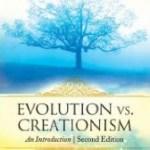Books
Over at Science Progress, I've been involved in putting together not one but two items timed for Darwin Day.
The first is an op-ed coauthored with my prof here at Princeton, D. Graham Burnett, who teaches Darwin. We argue for historical nuance, which leads one to reject the idea that Darwin should be considered an icon of conflict between science and religion. In fact, we call that idea "a hackneyed story, lacking in historical nuance and ultimately running counter to the project of drawing helpful lessons from the life of one of history's greatest scientists." A brief excerpt:
...Science-…
After careful reflection, I'd say it is worth reading The Origin of Species. Biology doesn't erase it's past, as I thought. It just forgets to cite it.
The Origin is biology's hub -- all the routes that the science has taken since seem to pass through it. This, I think, is partly because Darwin had such a complete vision of the living world, and partly because his ignorance of some areas was so great that he had to hedge his bets, and mention everything in just in case.
The book is so rich that I could have written about entirely different subjects in each post.
To give just one example, in…
So, what is there left to say? Not much. As its title suggests, the fourteenth and final chapter of the origin, 'Recapitulation and Conclusion', mostly restates things that Darwin has already said, often several times.
This relentless piling, sorting and re-arranging of evidence can make Darwin seem a little OCD, like an intellectual version of Wall-E. But he also knows that beneath all the case studies, there's a logical core to evolution by natural selection, even if he can't put it in an equation. Darwin brackets this chapter by showing that, if you accept the most basic evidence the…
In the last post, I introduced Francis Bacon--chiefly via the New Atlantis--and described a very interesting, if ultimately perhaps too strong, feminist reaction. But it's as though some feminists are Bacon's only enemies.
Neoconservative bioethicists, for example, see Bacon as the place where it all started to go wrong. Leon Kass, the great granddaddy of this school, and first head of President Bush's Council on Bioethics, took Bacon to task in his 1985 book Toward a More Natural Science: Biology and Human Affairs, a polemic against many new reproductive and biomedical technologies. As Kass…
Male chauvinist pig? Or worse?
I haven't even read Copernicus yet, and probably won't at least until this weekend. As far as my reading goes, the scientific revolution hasn't yet started and I'm still stuck with Ptolemaic glasses on.
History 293, though, is churning away, and yesterday we did our section on Francis Bacon and The New Atlantis. (Not satisfied with the course packet excerpt, this is the version I ordered from Amazon.) Man, here was a dude who, although writing in the early 1600s, sounds stunningly "modern"--a term I must now put in quotes due to the fact that I'm studying…
From the first dawn of life, all organic beings are found to resemble each other in descending degrees, so that they can be classed in groups under groups.
Isn't that a good sentence? It's the first of this chapter. There's music in the way the Biblical ring of "From the first dawn of life", falls towards the swallowed repetition of "groups under groups", which itself mirrors and explains the descending degrees of resemblance that gives the sentence its scientific filling.
The next line is just as good: "This classification is evidently not arbitrary like the grouping of the stars in…
So...it is not exactly easy to find history of science classics at your average--or even your well above average--bookstore.
The class I'm officially taking here at Princeton, History 293, focuses heavily on a course packet and so doesn't have many officially assigned books. It does have a few; they are Darwin's Voyage of the Beagle and Origin of Species--which I already own and have read, although right now they're somewhere in the middle of the country in transit--and Michael Adas's Machines As the Measure of Men: Science, Technology, and Ideologies of Western Dominance (Cornell Studies in…
Back in November I mentioned that I might possibly follow in Ed's footsteps and put together a "Best of Laelaps" collection. The only problem was that it was difficult to pick out posts I was proud of; I didn't want to put out an embarrassing collection of slapdash essays.
By the beginning of January I had nearly forgotten about the project. I didn't feel like I could put together something worth having. As of late, however, I have warmed to the idea of compiling a series of essays in book form. This isn't a matter of just picking some of my better posts, but carefully selecting pieces that I…
tags: Birdbooker Report, bird books, animal books, natural history books, ecology books
"One cannot have too many good bird books"
--Ralph Hoffmann, Birds of the Pacific States (1927).
The Birdbooker Report is a special weekly report of a wide variety of science, nature and behavior books that currently are, or soon will be available for purchase. This report is written by one of my Seattle birding pals and book collector, Ian "Birdbooker" Paulsen, and is edited by me and published here for your information and enjoyment. Below the fold is this week's issue of The Birdbooker Report which…
It's out! Evolution vs. Creationism: An Introduction Second Edition is now available on line and in bookstores (or at least it is being shipped out as we speak).
This is the newly revamped edition of Genie Scott's essential reference supporting the Evolutionist Perspective in the so called "debate" over creationism vs. evolution. The original version of this book was excellent, but this updated version is essential. There is quite a bit of new information in this volume reflecting the fact that quite a few things have happened since the publication of the prior edition.
Scott's book…
Back when I started this, I remarked that one of the reasons I hadn't read the Origin was that I couldn't imagine it being essential to a grasp of contemporary science. Regarding evolution, I think you could still make a case for this. But in other ways, that statement shows that you really shouldn't opine on topics you know nothing about.
Specifically, I'm talking about ecology (by which, just to be clear, I mean the study of the interactions of living things with each other and their environment, rather than 'nature' or 'environmentalism'). It's been said that all European philosophy is a…
Chester library has two thematic fiction sections that I've never seen at Swedish libraries. One offers historical fiction. The other, also quite large, is all mystery novels set in the distant past -- labelled "Past Crimes".
A coral atoll, from Darwin's The Structure and Distribution of Coral Reefs, 1842.
For those teeming millions near Hanover, N.H., here's notice that I'll be giving a talk at Dartmouth at 4pm today -- Thu, Feb 5 -- about Darwin's first, favorite, and (to me) most interesting theory, which was his theory about how coral reefs formed.
This is the subject of my book Reef Madness: Charles Darwin, Alexander Agassiz, and the Meaning of Coral, and I'll be posting more about it next week, during the Blog for Darwin festival. But the short version -- and the topic of my talk -- is this:
Darwin's coral…
When the Origin was published, the idea that species were not fixed entities had been in the air for some time, thanks to Lamarck, Robert Chambers, anonymous author of the best-selling Vestiges of the Natural History of Creation, and Darwin's own grandfather, Erasmus.
But unlike those men, Darwin put all the different pieces together into a coherent whole. How was that? Chapter 11 of the Origin, 'Geographical distribution', gives some hints.
First there's the nurture. In the age of long-haul flights and wildlife documentaries, it's easy to forget how difficult it was to see different…
From the Regulator Bookshop:
Time: Tuesday, February 3, 2009 7:00 p.m.
Location: Regulator Bookshop
Title of Event: Rob Dunn
NCSU ecology professor Rob Dunn will discuss and sign copies of his new book, Every Living Thing: Man's Obsessive Quest to Catalog Life, from Nanobacteria to New Monkeys. Dunn, an engaging science popularizer, tells the exhilarating story of humanity's quest to discover everything about our natural world from the unimaginably small in the most inhospitable of places on earth to the unimaginably far away in the unexplored canals on Mars. For more information see the…
We left Darwin in a troubled frame of mind. The fossil record seemed to offer little support to his theory (then again, it offered little support to any other theory). By the time we reach the end of chapter 10, 'On the geological succession of organic beings', he's feeling far more chipper:
"[A]ll the chief laws of palaeontology plainly proclaim, as it seems to me, that species have been produced by ordinary generation: old forms having been supplanted by new and improved forms of life, produced by the laws of variation still acting round us, and preserved by Natural Selection."
What…
So...how cool is this?
I'm 31 years old. I graduated from college in 1999. Since then I've been a journalist--for ten years.
But now, at this very minute, I'm finishing my first reading assignment for Princeton's History 293, "Science in a Global Context," taught by D. Graham Burnett. Today is the first day of classes. (Princeton starts late.)
I am a student again, exhilarated by the prospect--and also deeply confused by it.
For example, I currently have numerous journalistic and book assignments, in various stages of completion. So while I'm being a student, I'm also going to have to keep…
tags: Birdbooker Report, bird books, animal books, natural history books, ecology books
"One cannot have too many good bird books"
--Ralph Hoffmann, Birds of the Pacific States (1927).
The Birdbooker Report is a special weekly report of a wide variety of science, nature and behavior books that currently are, or soon will be available for purchase. This report is written by one of my Seattle birding pals and book collector, Ian "Birdbooker" Paulsen, and is edited by me and published here for your information and enjoyment. Below the fold is this week's issue of The Birdbooker Report which…
Emerging Model Organisms:
All exciting, but of course, I got it for the chapter on Japanese Quail. The protocol desribes how to make a transgenic quail. It sounds easy on paper. A few years back I took a graduate class and we spent the entire semester going through all the steps needed to make a transgenic bird. Nice to see this species getting a serious look once again. Will keep watching....
Evolution vs. Creationism: An Introduction by Eugenie C. Scott.
Written at this time.



